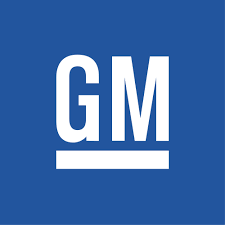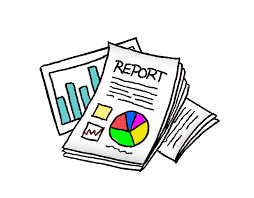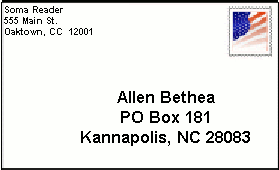 Branding: Leave it for Big Businesses
Branding: Leave it for Big Businesses
You read a lot of articles about the importance of branding yourself to gain clients. These articles are written and inspired by people who want to sell you branding services such as brochures, social media services, and public relations. The problem with personal branding is that you can spend a ton of money and earn nothing from it.
What's a far more effective and financially smart way to grow your business?
You want to focus your business marketing on direct response activities. Direct Response means that:
- You always ask the prospect to respond to your marketing
- You can always measure the result and profitability of a campaign
With direct marketing, you can immediately see your return on investment. You invest a dollar and you immediately know if you're getting a response. There is no wasting thousands of dollars and then praying for a result. You get the result immediately. I have done direct marketing for over 20,000 financial advisors since 2003 and it works - fast.
So rather than invest thousands of dollars in branding yourself, an activity that may never pay off, would it make more sense to try direct marketing for under $200 and see the results before you invest more? I will provide plenty of tips on how to create profitable direct marketing campaigns.
Professionals new to marketing make the mistake of taking their cues from big business ot so-called marketing experts. Don’t market or advertise your services as big businesses do as your context is not the same. The main issues focus on the difference between “push and pull” and “branding.”
Brand Yourself After You’ve Exhausted Direct Marketing Options
 If you serve a community of fixed size, you could exhaust your opportunities for direct marketing. You can only bombard the same audience a limited time before direct marketing activities become excessive and ineffective. But until you've exhausted your direct marketing work, there is no need to have a known identity or reputation for great success.
If you serve a community of fixed size, you could exhaust your opportunities for direct marketing. You can only bombard the same audience a limited time before direct marketing activities become excessive and ineffective. But until you've exhausted your direct marketing work, there is no need to have a known identity or reputation for great success.
Push and Pull
Large companies use the “pull” method of marketing. General Motors runs ads to make their cars look enticing to pull you into the dealership to take a test drive. Intel advertises “Intel inside” to have you come to the computer dealer and ask for an Intel machine. This type of advertising, to be effective, requires A LOT of money. You don’t have that much. You cannot run full page ads in your daily newspaper day after day to generate sufficient business. Even if you did, it would be a very inefficient use of your money.
For your context, you want to “push” people to you. “Push” technologies include
- Cold calls
- Seminars
- Direct Mail
- Telemarketing
- Direct Response
- Print advertising
- Radio and TV
- Internet Lead Generation
Notice that pull marketing is passive: the advertiser runs the ad and hopes for something to happen. Push marketing does not leave things to chance. You make direct contact with the prospect and push them into action with a time-urgent appealing offer. The cost of this marketing is lower than pull marketing and more effective.
Direct Response vs. Branding Yourself
 When you attempt branding yourself with an ad in the newspaper, the seller will always tell you that you cannot measure results directly because you don’t know how many people saw your ad and the “cumulative build up” of name recognition. This is an argument to keep you advertising and the seller making a commission.
When you attempt branding yourself with an ad in the newspaper, the seller will always tell you that you cannot measure results directly because you don’t know how many people saw your ad and the “cumulative build up” of name recognition. This is an argument to keep you advertising and the seller making a commission.
If instead, you run a direct response ad, an ad offering a free booklet “Six Strategies to Cut Taxes Your CPA Never Mentioned,” you can count the number of calls you get. You can now calculate your cost per prospect, factor in your conversion rate to clients and then calculate your cost and profit per new client to determine the profitability of this ad campaign.
Consider that direct response marketing provides a branding benefit anyway. So why invest money branding yourself and not ask the prospect to take action? General Motors spends a lot of money on television ads showing you their cars. They could increase profitability by including a call to action such as, "Register at GM.com by xx/xx/xx. If you buy and if we offer a lower price anytime during the next 12 months, we'll give you a rebate." GM could then market to these folks by email, direct mail or have dealers phone the prospect. Why ever try branding yourself and not include a call to action?
Use push not pull. Forget about branding yourself and make direct response your mantra.
Direct Response Examples
The Free Report
 One of the most widely used, mentioned above, is the free report. You can use this same tactic for any business. A well-known marketer, Joe Polish, used it to distinguish is carpet cleaning business above all others. Rather than run an ad in the phone book or classifieds (this was pre-Internet), Joe offered a free report "The 7 Insider Secrets -- Know Before You Hire a Carpet Cleaner." He had a phone number on the offer. People would call. He would automatically capture their phone number (caller id can capture 100% of phone numbers when the caller dials a toll-free number) and address.
One of the most widely used, mentioned above, is the free report. You can use this same tactic for any business. A well-known marketer, Joe Polish, used it to distinguish is carpet cleaning business above all others. Rather than run an ad in the phone book or classifieds (this was pre-Internet), Joe offered a free report "The 7 Insider Secrets -- Know Before You Hire a Carpet Cleaner." He had a phone number on the offer. People would call. He would automatically capture their phone number (caller id can capture 100% of phone numbers when the caller dials a toll-free number) and address.
Joe could then follow up by calling, sending the report with a coupon, drip emails, etc. This is the way a business can grow with limited resources.
Seminars
 Here's another example. I have seen seminars used successfully by a real estate agent and have done over 200 seminars to build my business as a financial advisor. The steps are simple:
Here's another example. I have seen seminars used successfully by a real estate agent and have done over 200 seminars to build my business as a financial advisor. The steps are simple:
- rent a list of your target market (in my case, people age 60+ in specific zip codes)
- send an invitation (the invitation must obey certain rules to be compelling)
- people call to reserve a seat
- you give an informative and entertaining presentation
- 2/3 of attendees set an appointment with you (when you offer the right type of appointment)
Seminars are self-financing as your profit from the first seminar can fuel others and so on. I make this sound easy because I already know the psychology or marketing and copywriting. Here you can find several seminar articles that can assist you.
Direct Mail
 For many businesses, direct mail is the least expensive lead generation method. While costlier than email, direct mail gets a better response rate. It's easy to see why direct mail shines. With email, you are very lucky to get 20% of your email opened. The major reason for the low open rate is the low delivery rate. Much of your email will likely be filtered out before it reaches the recipient.
For many businesses, direct mail is the least expensive lead generation method. While costlier than email, direct mail gets a better response rate. It's easy to see why direct mail shines. With email, you are very lucky to get 20% of your email opened. The major reason for the low open rate is the low delivery rate. Much of your email will likely be filtered out before it reaches the recipient.
As long as you design your envelope correctly, you will get 100% of your direct mail opened.
Common to All Direct Marketing
Headline
If you want to get great results, you need to start with a great headline (for email, the subject line). I would recommend that you study books on copywriting or hire a copywriter. Great headlines are not intuitive. To write great headlines, you need to study a large number of great headlines to get the gestalt. Once you have it, you have it forever.
Let me provide an example. I sent out an email today to financial advisors. The subject line:
"New Research – Group of Advisors Earning 5 Times More"
The title is compelling as it raises an extreme degree of curiosity and desire to not be left behind.
Even a phone call has a headline designed to capture the attention and curiosity of the recipient. While shocking, most phone calls open with an introduction such as,"Mrs. Jones, this is Bob Haward from the XYZ company. How are you today?" Do you think this opening generates attention and curiosity? Or does it generate loathing and impatience of receiving a cold call?
What if you opened every call so that if the recipient had interest, you immediately captured their interest and curiosity. In our business of helping financial advisors, we know that their big concern is finding new clients. So we open the call, "Joe? I understand you have an interest in meeting new clients. Is that still the case?" Do you think this headline captures recipients' interest?
You see, branding yourself is unimportant. What's is most important is having the answer to every prospect's question, "what's in it for me?" When you have that answer, your name, identity, and reputation are secondary.
You need a great headline everywhere you market:
- At the top of a letter (called a Johnson box)
- In your print advertisement
- In your Google Adwords
- As the email subject line
- At the beginning of a phone script
Envelope
 Would you like to get 100% of your direct mail pieces opened? Then put NOTHING on the envelope that reveals the content. The next time you look at your mail, if you find an envelope addressed to you, from a name you do not know but a local address, would you open it? Of course! The curiosity factor is high and there is a risk in tossing the mail unopened should it be important. So many direct mailers make the mistake of telling the recipient the contents and never get their mail opened.
Would you like to get 100% of your direct mail pieces opened? Then put NOTHING on the envelope that reveals the content. The next time you look at your mail, if you find an envelope addressed to you, from a name you do not know but a local address, would you open it? Of course! The curiosity factor is high and there is a risk in tossing the mail unopened should it be important. So many direct mailers make the mistake of telling the recipient the contents and never get their mail opened.
For example, when the envelope says "bundle phone and Internet for 30% off," do I need to open the envelope? There is no risk in me tossing it unopened. The ignorance of some direct mailers is shocking.
Body Copy
Whether email, direct mail or a phone call, the body copy is the substance of the message. It springboards from the headline to:
- retain interest
- clarify and deepen the problem
- suggest a solution
The body copy is intriguing so that the recipient reads (or listens) to the entire message. Again, you must know copywriting to craft these words. Although I have studied several books to become a good copywriter, the one "must read" is Jeffrey Lant's Cash Copy.
Call to Action
 The call to action, to be successful must obey some rules.
The call to action, to be successful must obey some rules.
First, it must be low risk or low cost. Years ago, I sold an $897 product by first sending the prospect a 15-page sales letter. I do not recall having anyone send us a check. They always called first, spoke to our staff and then ordered. We knew they would call if interested.
You cannot ask someone to come to your office for a financial review. They view it as high risk to disclose their personal financial information to a stranger. When marketing online, ask only for name and email. People view too much risk in providing name, address, phone, and email unless you have created trust by repeated contact.
Direct Response Radio
Radio can be inexpensive in a smaller market. Using radio as a medium makes your business seem big. Use it to have people phone for something:
- reserve a seat at a seminar
- order a free report
- order a free sample
- enter a contest
You get the benefit of branding yourself and simultaneously gathering leads of interested prospects.
Direct Response TV
Cable TV is the land of the infomercial. Producing the infomercial is the expensive part. You can often buy remnants of cable TV time inexpensively. TV of course is best when you need to demonstrate products and show their amazing benefits.
Because the price of the product is low, the risk is low. People are not worried that they spend $19.95 and the product turns out to be junk. On top of that, you guarantee the product for 60 days! Think about all the infomercials you have ever seen. Whole a few were for known brands (Bowflex, Nordictrak, etc), most offers worked even from unknown companies. And those companies that are well known in their field are known to you through their infomercials. As stated before, direct response marketing also provides branding benefit.
The author of this video provides illustrates many ways and steps to become a direct marketing superstar.



